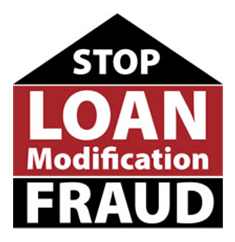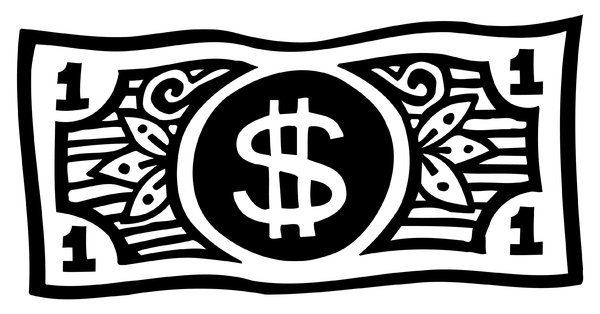The process of obtaining a mortgage for your home can be very confusing. There are many parties involved in your mortgage and it can be easy to become overwhelmed by all of the new information. Taking out a mortgage is not as simple as just paying the price of the home over a certain period of time. There is interest factored into your payment along with principal, tax and insurance. When your house gets foreclosed it's easy to throw your hands in the air and say, “It's not my fault, I must be a victim of predatory lending!”. However, this is not always a reasonable conclusion. Here are the signs to look for in order to figure out if you are truly a victim of bad lending.

[fa icon="clock-o"] Saturday, October 17, 2020 [fa icon="user"] Jordan Shealy [fa icon="folder-open'] Scam Alert, mortgage shopping,, mortgage, mortgage servicers, predatory lending, mortgage abuse, unclean hands, mortgage servicing, affirmative defense, normal servicing
Read More »
Loan modifications, which involve a permanent change to one or more of the terms of a mortgage, are often the only means homeowners who've fallen behind on their mortgage have to save their home. But they are quite difficult to get, and sometimes the bank denies that they've received a complete loan modification application, depriving the homeowner of vital protections against foreclosure.
To be eligible for a loan modification, a package called a Request for Mortgage Assistance, or RMA, must be submitted to the mortgage servicer. The RMA includes tax and income documents as well as an affidavit explaining the hardship that caused the default.
Your mortgage company is not supposed to move forward with foreclosure when you have a complete loan modification application accepted and under review. Doing so would be engaging in something called dual-tracking, which is prohibited by mortgage servicing rules from the Consumer Financial Protection Bureau (CFPB).
[fa icon="clock-o"] Tuesday, April 25, 2017 [fa icon="user"] Maxwell Swinney [fa icon="folder-open'] loan modification, Scam Alert, foreclosure, foreclosure fraud
Read More »
One of the fundamental principles of capitalism is that, if there are a sufficient number of consumers who wish to purchase a product or service, a market will be created to sell it to them. If there's money to be made meeting some need or want, whether it's real or imagined, vital or not, some entrepreneur will provide it and try to turn a profit. We're all grateful that farmers meet our need for food, and Hollywood meets our desire for entertainment (sometimes), and we're happy to hand over our money for those things. But there will always be some entrepreneurs who are intent on making money by deception, or by taking advantage of consumers who wish to purchase a miracle.
[fa icon="clock-o"] Monday, October 12, 2015 [fa icon="user"] Maxwell Swinney [fa icon="folder-open'] foreclosure defense, loan modification scams in Florida, Scam Alert
Read More »
It's important for consumers to understand they have important rights if contacted by a debt collector about a delinquent or defaulted account. "Millions of consumers per year may find themselves behind on payments and are contacted by a creditor or debt collector," ACA International CEO Pat Morris said. "While no one ever wants to get a call or letter telling them they owe money, consumers need to know they are protected by very important federal and state laws."
America's economy relies on the repayment of consumer credit such as loans, credit cards, and bills for services rendered to keep costs down and ensure the availability of affordable credit. Federal, state, and local governments in the public sector also rely on the repayment of billions of taxpayer owed dollars in delinquencies including student loans, uncollected court fees, unpaid taxes, library fines, and traffic tickets. The following are helpful tips for U.S. consumers who may be contacted about a rightfully owed debt:
[fa icon="clock-o"] Tuesday, May 20, 2014 [fa icon="user"] Jake Sterling [fa icon="folder-open'] understanding credit, Scam Alert
Read More »
Recently, the Lawyers’ Committee for Civil Rights Under Law and NeighborWorks® America highlighted the ongoing foreclosure rescue scam crisis during a press conference to identify top consumer complaints in New York.
During this National Consumer Protection Week event, representatives offered guidance on avoiding financial scams, including loan modification scams.
The Federal Trade Commission’s Office organized the press event, which highlighted the most egregious frauds plaguing New York residents and featured scam avoidance tips from the Better Business Bureau Serving Metropolitan New York, United States Postal Inspection Service, New York Attorney General’s Office, New York State Department of Financial Services, New York City Department of Consumer Affairs and AARP.
The Loan Modification Scam Alert Campaign educates homeowners about the warning signs that indicate that the person or company offering assistance may be a scam. The top three warning signs of a scam are any person or company that:
• Asks for fees in advance of fully providing services
• Guarantees that they’ll stop a foreclosure or get your loan modified.
• Tells you to stop paying your mortgage company and to pay them instead
[fa icon="clock-o"] Tuesday, May 13, 2014 [fa icon="user"] Jake Sterling [fa icon="folder-open'] mortgage fraud, loan modification scams in Florida, Scam Alert
Read More »
While Baby Boomers are generally in better financial shape than their younger counterparts, many of their needs are more urgent due to their relatively short time horizon until retirement. Here are some steps for Baby Boomers to take now:
[fa icon="clock-o"] Tuesday, May 6, 2014 [fa icon="user"] Jake Sterling [fa icon="folder-open'] understanding credit, financial worksheet for loan modification, Scam Alert
Read More »
After countless hours spent holiday shopping, you finally finished. Now, you're faced with the credit card payments as you roll into the new year. While it may have been difficult to keep your finances - particularly your credit cards - top of mind amid the dash from store to store, those payments aren't going anywhere. Managing your credit can seem like a daunting task—but it doesn't have to be. Even if you've blown your budget and maxed out your cards, you can still take control of your credit and become financially fit.
Here are five things you should do right now to help get your credit back on track and sustain your financial reputation all year long:
[fa icon="clock-o"] Tuesday, April 8, 2014 [fa icon="user"] Jake Sterling [fa icon="folder-open'] understanding credit, financial worksheet for loan modification, Scam Alert
Read More »
Canada Mortgage and Housing Corporation (CMHC) offers the following tips to protect yourself against becoming a victim of mortgage fraud.
Be an informed consumer! Be wary of anyone who approaches you with an offer to make "easy money" in real estate. Remember: if a deal sounds too good to be true, it probably is. Protect yourself and your family from becoming victims of or accomplices to mortgage fraud. This means:
[fa icon="clock-o"] Tuesday, April 1, 2014 [fa icon="user"] Jake Sterling [fa icon="folder-open'] mortgage fraud, Scam Alert, mortgage shopping,
Read More »
(BPT) - In the next few months, high school seniors across the country will be anxiously checking mailboxes for college acceptance letters. With two-thirds of recent high school grads enrolling in college as of 2012, according to the Bureau of Labor Statistics, it is the first step on a journey towards personal and financial independence for many Americans. Whether an incoming freshman, soon to be senior or recent grad, it is never too early to get financially fit. The key to success is to make the process fun and manageable.
Easy and enjoyable financial planning is the premise behind TheMintGrad.org, a new website from Northwestern Mutual, intended to encourage 18-24 year olds to embrace the notion of F.L.C. (financial loving care) - or the importance of strong financial habits as an essential component of overall well-being. In addition to a wide spectrum of content on topics ranging from investing to interview tips, the site features columns by well-known financial bloggers and user-friendly interactive tools. According to experts at TheMintGrad.org, the quickest way to jumpstart a financial fitness program is to mind your B.I.S.:
Budgeting - Less than one third of Americans (32 percent) put together a monthly budget. Learning to track income and expenses is essential to staying out of debt, especially for someone with limited means. Successful budgeting is similar to dieting. It is important to be realistic with goals and work towards incremental improvements. And like dieting, "cheating" once or twice will not undermine progress unless it becomes an excuse for abandoning the effort.
[fa icon="clock-o"] Tuesday, March 11, 2014 [fa icon="user"] Jake Sterling [fa icon="folder-open'] understanding credit, Scam Alert, mortgage shopping,
Read More »
By John Voket
In this report, I will pick up where I left off: reviewing details from the Connecticut Public Interest Research Group - ConnPIRG - about new Consumer Financial Protection Bureau (CFPB) rules that just went into effect to help protect homeowners and homebuyers from mortgage abuses.
ConnPIRG is a non-profit, non-partisan advocacy organization that takes on powerful interests on behalf of its members. As a founding member of the coalition Americans for Financial Reform, ConnPIRG helped lead the fight to establish the Consumer Financial Protection Bureau.
Abe Scarr, ConnPIRG Director said in addition to the CFPB's new rules protecting homebuyers and homeowners, the agency has released a variety of self-help tools so consumers can protect themselves.
[fa icon="clock-o"] Tuesday, February 11, 2014 [fa icon="user"] Jake Sterling [fa icon="folder-open'] mortgage fraud, Scam Alert, mortgage shopping,
Read More »







